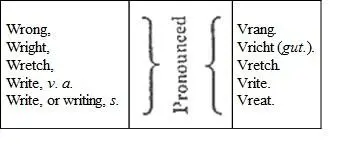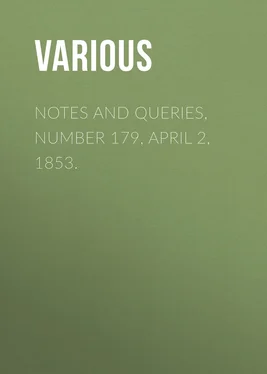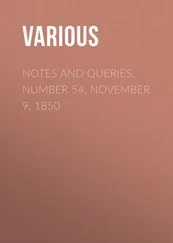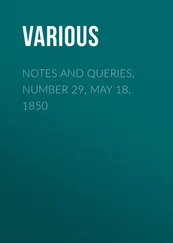Various - Notes and Queries, Number 179, April 2, 1853.
Здесь есть возможность читать онлайн «Various - Notes and Queries, Number 179, April 2, 1853.» — ознакомительный отрывок электронной книги совершенно бесплатно, а после прочтения отрывка купить полную версию. В некоторых случаях можно слушать аудио, скачать через торрент в формате fb2 и присутствует краткое содержание. Жанр: foreign_antique, periodic, foreign_edu, на английском языке. Описание произведения, (предисловие) а так же отзывы посетителей доступны на портале библиотеки ЛибКат.
- Название:Notes and Queries, Number 179, April 2, 1853.
- Автор:
- Жанр:
- Год:неизвестен
- ISBN:нет данных
- Рейтинг книги:5 / 5. Голосов: 1
-
Избранное:Добавить в избранное
- Отзывы:
-
Ваша оценка:
- 100
- 1
- 2
- 3
- 4
- 5
Notes and Queries, Number 179, April 2, 1853.: краткое содержание, описание и аннотация
Предлагаем к чтению аннотацию, описание, краткое содержание или предисловие (зависит от того, что написал сам автор книги «Notes and Queries, Number 179, April 2, 1853.»). Если вы не нашли необходимую информацию о книге — напишите в комментариях, мы постараемся отыскать её.
Notes and Queries, Number 179, April 2, 1853. — читать онлайн ознакомительный отрывок
Ниже представлен текст книги, разбитый по страницам. Система сохранения места последней прочитанной страницы, позволяет с удобством читать онлайн бесплатно книгу «Notes and Queries, Number 179, April 2, 1853.», без необходимости каждый раз заново искать на чём Вы остановились. Поставьте закладку, и сможете в любой момент перейти на страницу, на которой закончили чтение.
Интервал:
Закладка:
I inclose you a transcript of a letter of Boswell's which I think worthy of being permanently recorded, and am not aware of its having been before in print.
Edinburgh, 11th April, 1774.
Dear Sir,
When Mr. Johnson and I arrived at Inveraray after our expedition to the Hebrides, and there for the first time after many days renewed our enjoyment of the luxuries of civilised life, one of the most elegant that I could wish to find was lying for me, a letter from Mr. Garrick. It was a pineapple of the finest flavour, which had a high zest indeed amongst the heath-covered mountains of Scotia. That I have not thanked you for it long ere now is one of those strange facts for which it is so difficult to account, that I shall not attempt it. The Idler has strongly expressed many of the wonderful effects of the vis inertiæ of the human mind. But it is hardly credible that a man should have the warmest regard for his friend, a constant desire to show it, and a keen ambition for a frequent epistolary intercourse with him, and yet should let months roll on without having resolution, or activity, or power, or whatever it be, to write a few lines. A man in such a situation is somewhat like Tantalus reversed. He recedes, he knows not how, from what he loves, which is full as provoking as when what he loves recedes from him. That my complaint is not a peculiar fancy, but deep in human nature, I appeal to the authority of St. Paul, who though he had not been exalted to the dignity of an apostle, would have stood high in fame as a philosopher and orator, " What I would that do I not. " You need be under no concern as to your debt to me for the book which I purchased for you. It was long ago discharged; for believe me, I intended the book as a present. Or if you rather chuse that it should be held as an exchange with the epitaphs which you sent me, I have no objection. Dr. Goldsmith's death would affect all the club much. I have not been so much affected with any event that has happened of a long time. I wish you would give me, who am at a distance, and who cannot get to London this spring, some particulars with regards to his last appearances. Dr. Young has a fine thought to this purpose, that every friend who goes before us to the other side of the river of death, makes the passage to us the easier. Were our club all removed to a future world but one or two, they , one should think, would incline to follow. By all means let me be on your list of subscribers to Mr. Morrell's Prometheus . You have enlivened the town, I see, with a musical piece. The prologue is admirably fancied arripere populum tributim ; though, to be sure, Foote's remark applies to it, that your prologues have a culinary turn, and that therefore the motto to your collection of them should be, Animus jamdudum in Patinis. A player upon words might answer him, "Any Patinis rather than your Piety in Pattens." I wonder the wags have not been quoting upon you, "Whose erudition is a Christmas tale ." But Mr. Johnson is ready to bruise any one who calls in question your classical knowledge and your happy application of it. I hope Mr. Johnson has given you an entertaining account of his Northern Tour. He is certainly to favour the world with some of his remarks. Pray do not fail to quicken him by word as I do by letter. Posterity will be the more obliged to his friends the more that they can prevail with him to write. With best compliments to Mrs. Garrick, and hoping that you will not punish me by being long silent, I remain faithfully yours,
James Boswell.To David Garrick, Esq.,
Adelphi, London.
W. P.Minor Notes
White Roses. —In an old newspaper, The Weekly Journal, or British Gazetteer , of Saturday, June 15, 1723, I find the following paragraph:
"Monday being the anniversary of the White Roses, some persons who had a mind to boast that they had bid defiance to the government, put them on early in the morning; but the mob not liking such doings, gathered about them, and demolished the wearers; which so terrified the crew, that not one of them afterwards would touch a white rose."
Can you, or any of your correspondents, explain this curious allusion? Is it to the emblem of the House of York, or the badge of the Pretender?
E. G. B.Fifeshire Pronunciation. —I have observed, in various parts of Fifeshire, a singular peculiarity in the pronunciation of certain words, of which the following are specimens:

This strange mode is not altogether confined to the most illiterate portion of the people. My query is, Does this peculiarity obtain in any other portion of Scotland?
A. R. X.Paisley.
Original Letter. —The following letter, written by the French general at Guadaloupe, when it was taken in 1810, to his conqueror, is an exquisite specimen of something more than that national politeness which does not desert a Frenchman even in misfortune. I possess the original:
Au quartier général du Parc, le 6 Février, 1810.A son Excellence
Le Général Beckwith, Commandant en chef les forces de sa Majesté Britannique aux isles du Vent.
Monsieur le Général,
J'ai été prévenu que Votre Excellence se proposait de venir au Parc demain dans la matinée. J'ose espérer qu'elle voudra bien me faire l'honneur d'accepter le diner que lui offre un Général malheureux et vaincu, mais qu'il présente de tout cœur.
Daignez, Monsieur le Général, agréer l'assurance de la haute considération avec laquelle
J'ai l'honneur d'être, de votre Excellence, Le très-obéissant serviteur, Emouf. Edward Foss.Erroneous Forms of Speech. —Since you allow your correspondents to correct such words as teetotal , I hope you will allow me to call the attention of your agricultural readers to the corruption in the word mangold , as they now write it. The word is in German mangel wurzel , root of scarcity. It is wrong to use even such a name as this, in my opinion, while we have the English name beet , which has the additional advantage of being derived from the botanical name Beta . But if a new name must be used, let it, at any rate, be the pure German mangel , and not the mongrel mangold . Indeed, those who spell the word in the latter way, ought in common consistency to write reddishes, sparrowgrass , and cowcumbers for radishes, asparagus, and cucumbers.
E. G. R.QUERIES
EUSTACHE DE SAINT PIERRE
(Vol. vii., p. 10.)
Mr. King's inquiry reminds me of two Queries on the same subject which I sent you as far back as the end of 1851, or beginning of 1852. Those Queries have not appeared in "N. & Q.," and I was led to suppose, either that you had laid them aside for some future occasion, or had found something objectionable in the form in which they were presented. The following is a literal copy.
"There are two circumstances connected with this event (the surrender of Calais), respecting which I am desirous of obtaining information. The first has reference to the individuals who offered themselves as victims to appease the exasperation of Edward III., after the obstinate siege of that town in 1347. They are represented as six of the principal citizens; Eustache de Saint Pierre was at their head, and the names of three others have come down to us, as Jean d'Aire, Jacques de Wissant, and Pierre de Wissant. Who were the other two?
"The second point relates to the character of that occurrence. Some historians are of opinion that the devotedness of Saint Pierre and his associates was prompted by the most exalted sentiments of patriotism; while others assert that it was all a 'sham,' that Saint-Pierre was secretly attached to the cause of the English monarch, and that he was subsequently employed by him in some confidential negociations. To which of these opinions should the historical inquirer give his assent?"
Читать дальшеИнтервал:
Закладка:
Похожие книги на «Notes and Queries, Number 179, April 2, 1853.»
Представляем Вашему вниманию похожие книги на «Notes and Queries, Number 179, April 2, 1853.» списком для выбора. Мы отобрали схожую по названию и смыслу литературу в надежде предоставить читателям больше вариантов отыскать новые, интересные, ещё непрочитанные произведения.
Обсуждение, отзывы о книге «Notes and Queries, Number 179, April 2, 1853.» и просто собственные мнения читателей. Оставьте ваши комментарии, напишите, что Вы думаете о произведении, его смысле или главных героях. Укажите что конкретно понравилось, а что нет, и почему Вы так считаете.












